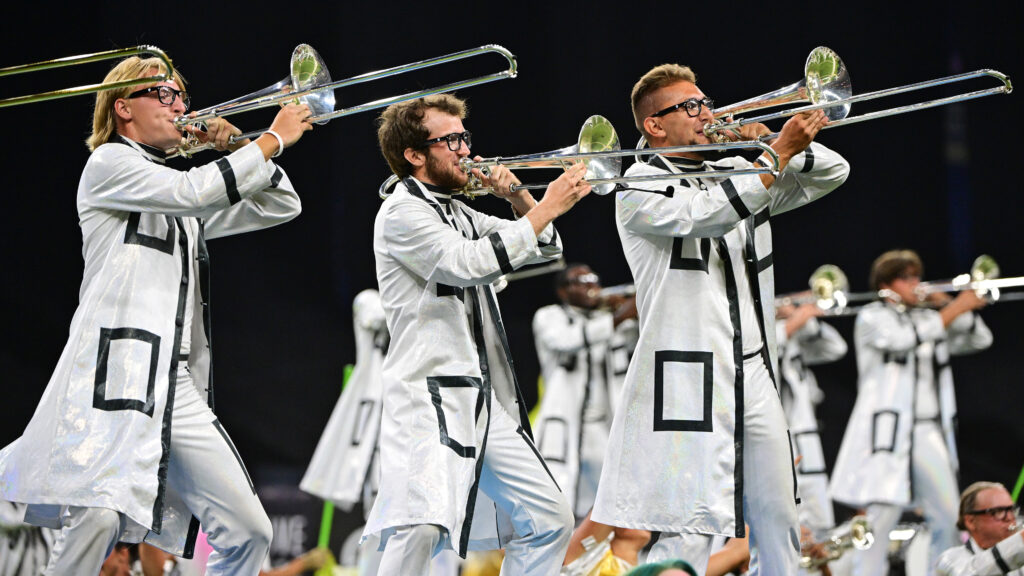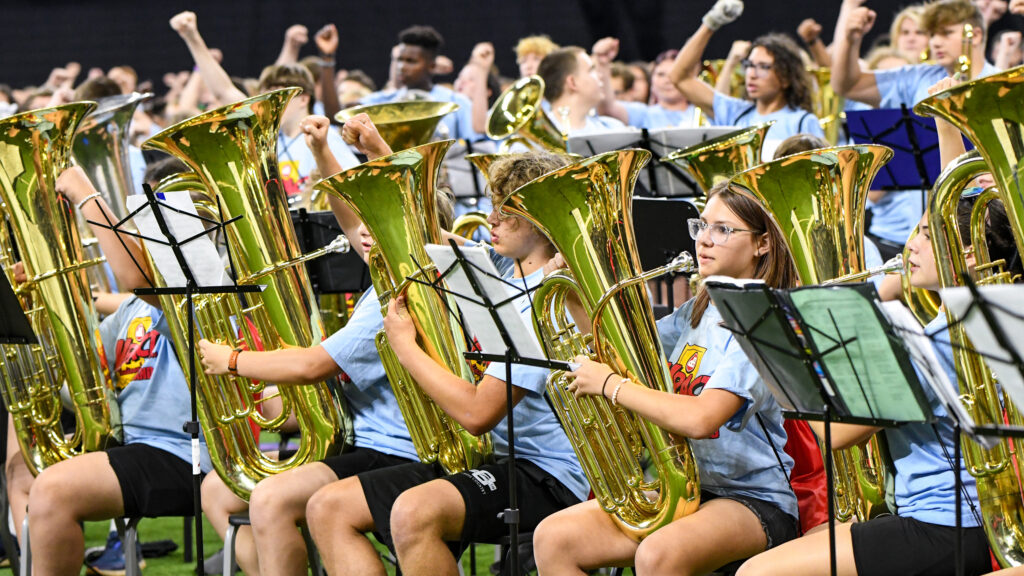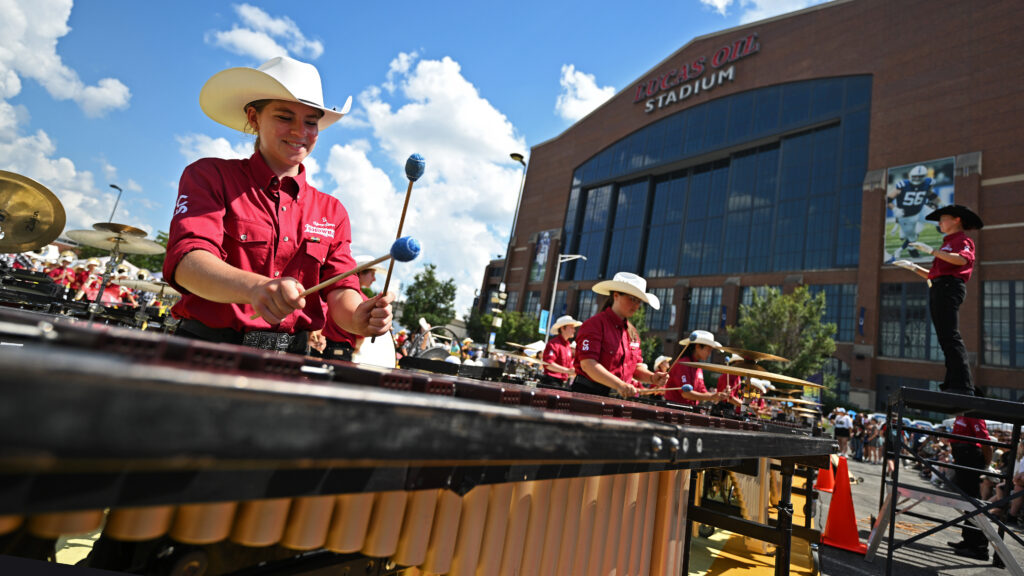This week, we’ll be focusing some editorial power on drum corps memories from our Canadian friends — we are Drum Corps International, after all. By John Phillips
DCI judges administrator

The “good old days” in Canadian drums corps for me were in the late
1960s and early 1970s. The Canadian National Championships featured dozens of corps competing at all levels, from parade class to what we then referred to as “A” class. Our championships took place over two days and would move from Toronto to Waterloo, Kingston, Ottawa or Montreal each year. We ended our summer of competition on Labour Day weekend and I distinctly remember marching in two Nationals when it snowed — once in Montreal and once in Ottawa. The big competition was between the Toronto Optimists (the other “Green
Machine”), who were sponsored by a service club, and De LaSalle, a Catholic boys school. Both were all-male organizations. Each year they would duke it out for the national title. There were some other corps in the hunt as well, including the York Lions, Sarnia Sertomanaires and a wonderful group from Ottawa, Cadets LaSalle. I always rooted for Cadets LaSalle but they just didn’t march as well as the Toronto corps. I marched in a corps sponsored by the local fire department known as the Scarborough Firefighters. We were “B” class champions a couple of years, but had some pretty fierce competition from the Golden Monarchs,
Arnprior Lions, Midlanders, groups from Smiths Falls and Carleton Place near Ottawa (I forget their names) and a whole bunch of corps from Quebec. The French groups always threw us for loop because we didn’t compete with them all summer. They would just show up and often clean our clocks. I always found the Quebec corps to be very colourful and creative, but usually the English-speaking judges didn’t appreciate nor understand their creativity. Most of our judges were military-trained, and considered “old school” drum corps. We also had a very active all-girls class that featured a group from
Montreal, Les Chatelaines, and a solid group from Brantford, St. Johns. There were two all-girl corps from Sarnia and numerous others from Quebec. I remember about eight senior corps as well — three from the city of Toronto alone. I always looked forward to a Canadian drum corps show that was held in June and visiting groups such as the Boston Crusaders, Cavaliers, St. Joseph’s of Batavia, Des Plaines Vanguard and Chicago Royal Aires would participate. The event was held in a large venue that really showcased some pretty impressive corps for so early in the season. Seeing these groups inspired my friends and me to improve our own corps. In fact, in 1974 or 1975 we defeated the Toronto Optimists and won the “A” class. By then our corps had transformed itself into a new organization sponsored by a community college and we were known as the Seneca Princemen. In those days a major trip for us was an overnighter to Sheffield,
Pennsylvania, Corning, New York or Montreal. Very few corps except the
Optimists or De LaSalle would travel beyond a border state. Eventually our corps started to participate in major events like the U.S. Open in Marion, Ohio, Toledo Key to the Sea, and the American Open in Butler, Pa. Traveling was a real highlight. We suffered all the bus breakdowns, customs busts, initiations and mating rituals that most other corps, even today, experience. By the mid-1970s, Canadian drum corps were starting to dwindle and many organizations had merged. This was a way, I suppose, of keeping at least one or two shrinking corps alive. New corps emerged, like Seneca Optimists and Oakland Crusaders, both remnants of the first two groups I mentioned. For me the best part of drum corps was being a member of the “little guy” corps. It was exciting to win a caption or two away from one of the big guns at major events in both Canada and the U.S. We had some really great brass players and our instructor, while not a schooled musician, was a fantastic motivator and mentor. We were content to practice a few times a week and compete on weekends. My friends and I were constantly being wooed by the major players in the Toronto area to play with them. We turned them down and practiced that much harder. My most embarrassing moment was losing a shoe while marching out in front of the corps to play a solo at a local show. That was nothing compared with the soloist from a visiting American corps in the very same show who lost his pants. Our drum corps world was a family-oriented experience. Our parents socialized because of our involvement in the corps. They did the fund-raising and planning for our trips. Some of them even drove the buses. I think that much of what I learned in drum corps in those formative years has helped to shape my personal and professional life. My closest friends were and still are from drum corps. If you had asked me 35 years ago if I would still be involved in
drum corps in 2003, I may have said no. But then again it was such an important part of my life that I might well have said YES!





